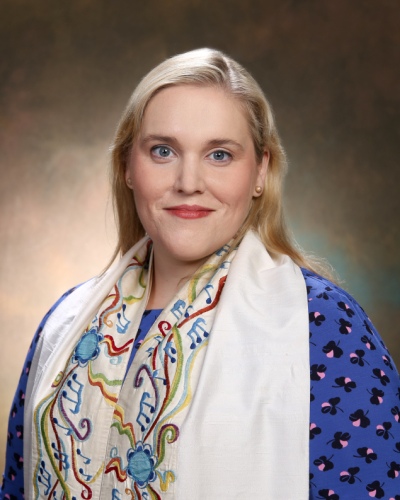“I offer thanks to You, ever-living Sovereign, that You have restored my soul to me in mercy: How great is Your trust.”
This translation of the Modeh Ani prayer begins each of the morning services in Mishkan T’filah, the Reform Movement’s 2007 prayer book. The very first words on our lips each day are meant to be words of gratitude.
Later in the service, the penultimate blessing of the Amida is also an expression of deep gratitude to God. Mishkan T’filah offers this creative reading for the Hoda’ah:
God of goodness, we give thanks for the gift of life, wonder beyond words; for the awareness of soul, our light within; for the world around us, so filled with beauty; for the richness of the earth, which day by day sustains us; for all these and more, we offer thanks. Blessed are You, Adonai, Your Name is Goodness, and You are worthy of thanksgiving.
If we are paying attention when we pray, gratitude is always on our lips. These prayers of gratitude are meant to inspire us to set aside the distractions of our busy lives and see the beauty of the world around us. When we truly see what is at hand, our hearts burst forth with gratitude.
We engage in prayer for many different reasons. Some of us pray in search of solace, healing, or a sense of wholeness; others pray in search of Divine communion and others still in search of connection to those who sit in the sanctuary at the same time. Whatever the myriad reasons that bring us to prayer, prayer serves a great purpose when it enables the one who prays to emerge from worship with renewed insight for meaningful ways to engage in the daily art of living. Prayer can do wonders for how we face the world.
A great example of this is that we are clearly instructed that the prayers of the Yamim Nora’im, the High Holy Days, only atone for our shortcomings as individuals with God, not between us and other people. We are told plainly that we must do the hard work of atoning for any mistreatment of other human beings. We have to work to repair our wrongdoings through our words and our actions, not simply through our best intentions. Prayer can help us find the fortitude to bravely ask forgiveness. Prayer can be practice between the individual and loving God and it can help us learn how to treat one another.
What then do we learn from these prayers of gratitude to God? We thank God every time we come to prayer as practice for expressing gratitude to our loved ones, our coworkers, and our neighbors. In the intimacy of our spiritual connection to the Divine, we say thank you. In the light of day amidst deadlines and travel and siblings and bosses and conflict, we say thank you to one another.
Our American Thanksgiving is not unlike Yom Kippur in this respect. In so many ways, Yom Kippur is a failsafe that ensures that at least once per year we acknowledge our finitude and confront our shortcomings, repairing that which is broken in our lives. Similarly, Thanksgiving is a yearly gift that reminds us to express gratitude to those whose gifts bring so much to our lives each and every day.
Prayers of gratitude are a launching point for words of gratitude. Foster inner gratitude through prayer and through silent contemplation that words and expressions of gratitude flow freely from us. We must practice gratitude in our homes and on our way, when we lie down and when we rise up. We must teach gratitude to our children and our children’s children, as we teach gratitude to ourselves.
At this season of Thanksgiving, we say: thank you. We say: I see you. We say: my life is better because of you. We say: I appreciate you. We say: you are loved. We say: you are a blessing to our family. We say: you are an inspiration to me. We say these things; we do not only think them. We say them each and every day.
Let us know that gratitude is infectious. Gratitude to God, gratitude to and appreciation for yourself, and gratitude to those wonderful souls you encounter day after day are intertwined, each helping the other to grow and shine more brightly. From prayer to practice and practice to proficiency, from proficiency to a life meaningfully led.
Modeh Ani L’fanecha – I am thankful before You.




